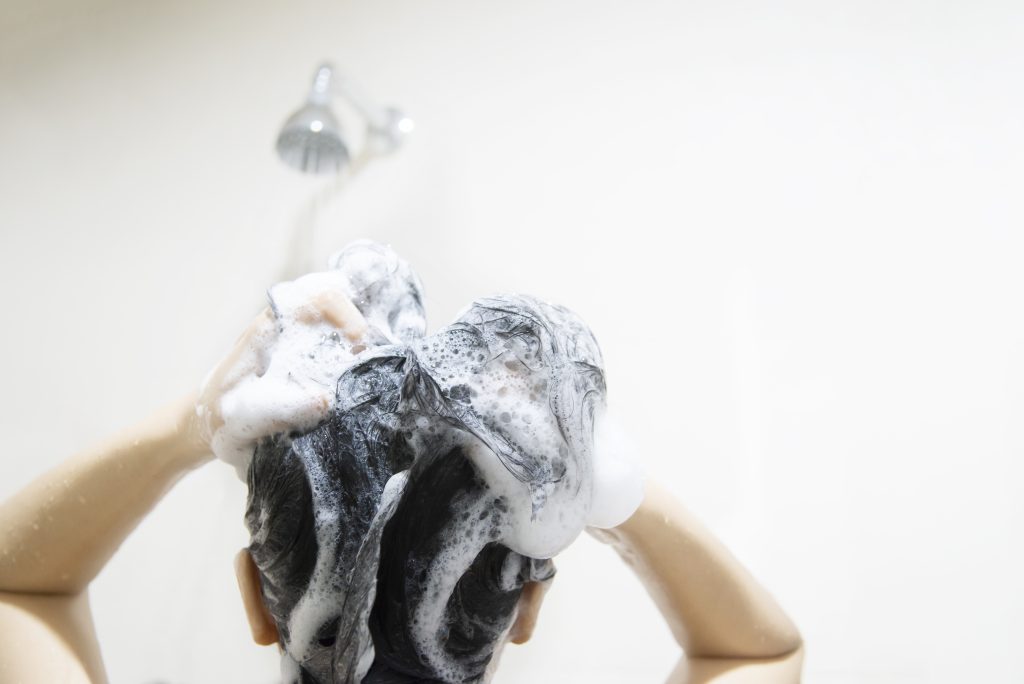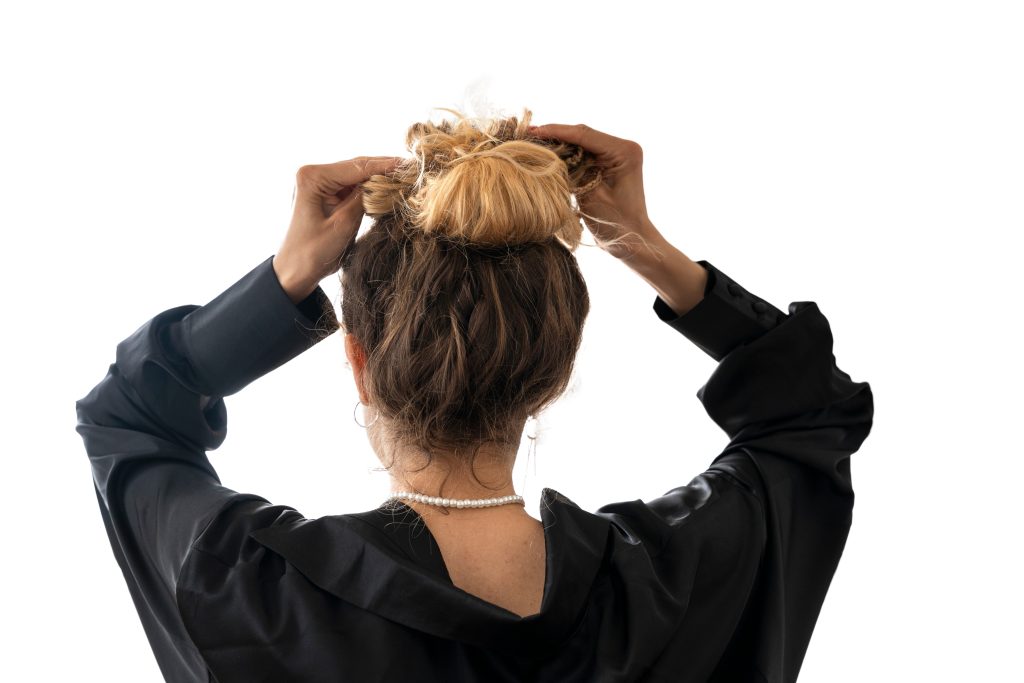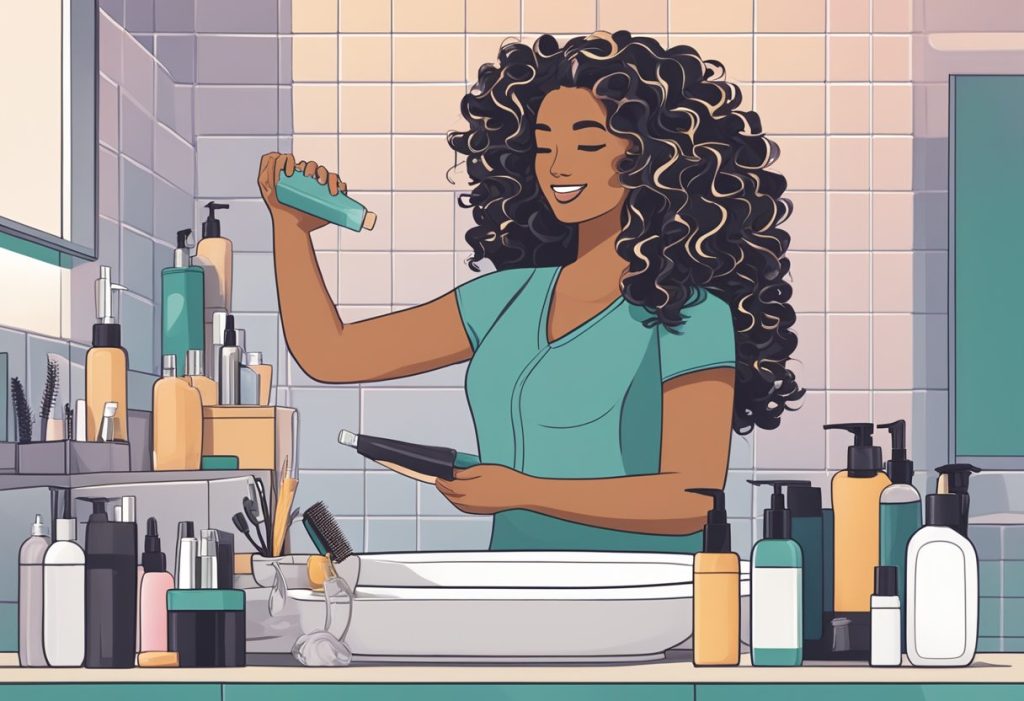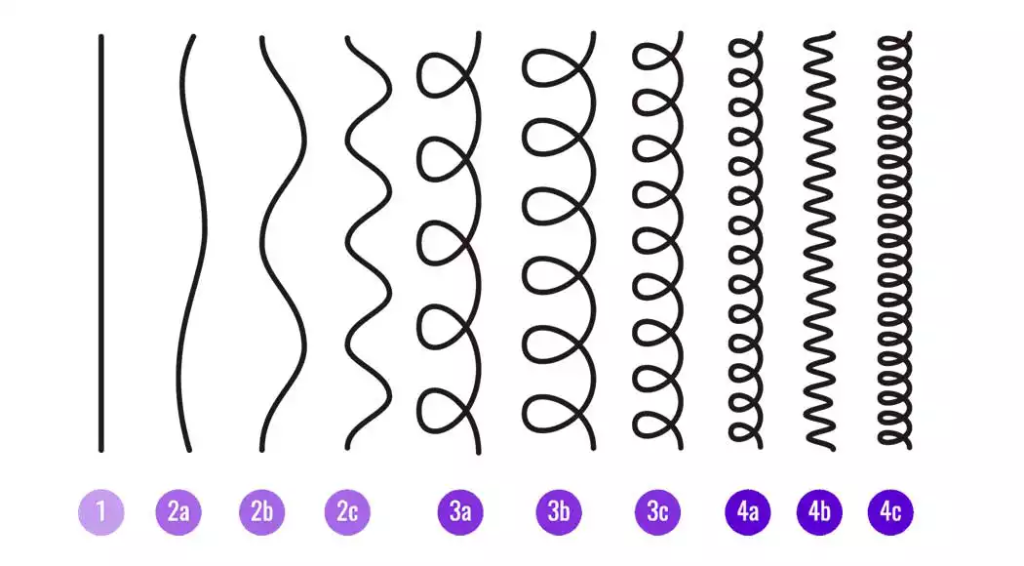Taking care of your hair goes beyond just shampooing and conditioning. To truly nourish and restore your locks, incorporating a hair mask into your routine can make a significant difference. Hair masks are deep conditioning treatments that provide essential nutrients to maintain healthy hair. They can be tailored to your specific hair needs and can offer a wide range of benefits.
Using hair masks in your routine can be a game-changing addition to your hair care regimen. These powerful treatments are designed to help address common hair issues, such as dryness, breakage, and lack of shine.
With so many hair mask options available, it’s essential to know what ingredients are best for your hair type. Whether you have dry, oily, or damaged tresses, adding a hair mask to your routine can help transform the look and feel of your hair.
Understanding Hair Masks

First, let’s discuss what differentiates hair masks from regular conditioners. While both products are used to improve the condition of your hair, hair masks offer a more potent and intense treatment. They are designed to be left on your hair for a longer period to penetrate the hair shaft, providing maximum hydration and nourishment. In comparison, conditioners are meant for daily use and typically offer a lighter level of hydration.
When choosing a hair mask, it’s important to focus on the ingredients in the product. Quality hair masks often contain natural ingredients, such as argan oil, that can help protect and hydrate color-treated hair.
To maximize the benefits of your hair mask, determine the frequency of use based on your hair’s needs. Most hair types can benefit from a hair mask treatment once per week, while those who use heated styling products or have damaged hair may require more frequent applications.
Incorporating a hair mask into your hair care routine can make a significant difference over time. By exploring different products and ingredients, you’ll be able to find the most suitable hair mask for your specific needs and enjoy the numerous benefits it offers.
Benefits of Using Hair Masks

Here are six advantages of using hair masks.
Provides Moisture and Hydration
Hair masks are excellent for providing deep hydration and moisture to your hair. These treatments nourish your hair using natural oils, which can penetrate the hair shaft and prevent dryness. Proper moisture reduces frizz and enhances the softness of your hair.
Repairs Damage
Hair masks can minimize the damage caused by heat styling, chemical treatments, and environmental factors, helping you regain your hair’s strength and elasticity. Regular use of hair masks will help repair hair cuticles, making them smoother, and reduce breakage.
Improve Shine and Radiance
By deeply nourishing your hair, masks can improve its shine and radiance. The nutrients in hair masks seal the hair cuticle, eliminating dullness and ensuring your hair looks lustrous and vibrant.
Strengthens
Hair masks contain essential nutrients that help fortify your hair strands, making them more resistant to breakage. This added resilience is particularly beneficial if your hair has experienced damage due to styling or color treatments.
Enhances Softness and Manageability
By providing ample hydration and nourishment, hair masks can enhance the softness of your hair. This improvement in texture makes your hair more manageable, allowing for easier styling.
Improves Scalp Health
A healthy scalp is crucial for strong, beautiful hair. Hair masks can help maintain a balanced and nourished scalp, leading to healthier hair growth and overall vitality.
Different Types of Hair Masks and Their Benefits

For Dry Hair
If you have dry hair, it’s essential to find a hair mask that can provide intense hydration and moisture. Hair masks specifically targeted for dry hair usually contain natural oils and butters that work together to moisturize and hydrate your hair. Some common ingredients in these masks are avocado oil and shea butter, known for their ability to lock in moisture and restore hair health.
For Damaged Hair
Damaged hair requires additional care, and using a hair mask specifically designed for damaged hair can help address various hair concerns. These masks typically contain protein and other nourishing ingredients like keratin and almond oil to repair and strengthen your hair.
Incorporating hair masks for damaged hair into your hair care routine can improve the overall health and appearance of your hair by repairing damage and reducing breakage.
Ingredients Found in Hair Masks

Hair masks are formulated with various beneficial ingredients to cater to different hair needs. When selecting the perfect hair mask for your hair, it’s essential to know the ingredients and their benefits. Some of the key ingredients you may find in hair masks include:
Oils
Oils like coconut and olive oil are widely used in hair masks to provide deep nourishment and hydration. These oils are known for their ability to penetrate the hair shaft and lock in moisture effectively, resulting in soft, shiny, and healthy hair.
Honey
Honey is a natural humectant, which means it helps attract and retain moisture within your hair. It is also rich in vitamins and minerals that can promote healthy hair growth and a smooth, shiny appearance.
Vitamins and minerals
Hair masks may contain essential vitamins and minerals, such as vitamin E, B vitamins, and magnesium, which help strengthen and protect your hair. These nutrients are vital for promoting hair growth and preventing breakage, as well as nourishing the scalp.
Natural ingredients
In addition to oils and honey, hair masks can also contain other natural ingredients such as plant extracts and eggs. These ingredients offer various benefits, from promoting hair growth to restoring damaged hair.
Here’s a quick breakdown of some popular ingredients and their benefits:
| Ingredient | Benefits |
|---|---|
| Coconut oil | Deep nourishment and hydration |
| Olive oil | Strengthens and protects hair |
| Honey | Moisturizes, promotes growth, and adds shine |
| Vitamins | Supports hair growth, prevents breakage |
| Plant extracts | Enhances growth, restores damaged hair, provides antioxidants |
Correct Application of Hair Masks

To maximize the benefits of hair masks, it’s important to apply them correctly. Follow these steps to achieve the best results:
- Shampoo your hair: Start by shampooing your hair to remove any buildup and dirt from your scalp and hair strands. This will allow the hair mask ingredients to penetrate more deeply.
- Rinse thoroughly: After shampooing, rinse your hair with lukewarm water. Make sure you remove all shampoo suds, as any residue may interfere with the absorption of the hair mask.
- Towel-dry your hair: Gently pat your hair with a towel to remove excess water. For best results, your hair should be damp, but not soaking wet.
- Divide your hair into sections: It’s recommended to divide your hair into sections, especially if you have long or thick hair. This ensures more even coverage of the mask.
Now that your hair is prepped, you can proceed to apply the hair mask:
- Apply the mask: Starting from the mid-lengths to the tips, apply the hair mask to each section, concentrating on the most damaged areas. Be sure to cover every hair strand for maximum benefit.
- Massage the mask into your scalp: In addition to applying the mask to your hair strands, gently massage the product into your scalp. This can help promote a healthy scalp and support hair growth.
- Cover your hair: After applying the mask, cover your hair with a shower cap. This will help trap heat and allow the mask to penetrate more deeply into your hair.
- Wait: Allow the mask to work its magic by leaving it on for the recommended amount of time (typically 10 minutes to overnight, depending on the product).
- Rinse your hair: Once the time is up, rinse your hair thoroughly with cold water to lock in the nutrients and seal the hair cuticle. This will help make your hair look shinier and smoother.
Remember, the frequency of using a hair mask depends on your hair’s level of damage and your specific needs. For most hair types, once per week should suffice. However, if you use heat-styling tools regularly, your hair might require more frequent treatment.
It’s essential to listen to your hair’s needs and adjust the frequency accordingly. If you notice significant improvements, you may gradually reduce the usage. On the other hand, if your hair still feels dry or damaged, consider increasing the frequency or experimenting with different types of hair masks. Keep in mind that using hair masks excessively can cause build-up, which can lead to an imbalance in your hair’s natural protective layer. So, it’s vital to strike a balance in order to maintain your hair’s health and appearance.
Overcoming Common Hair Issues With Hair Masks

Dealing with Split Ends
Hair masks are an excellent solution for dealing with split ends that occur when the cuticle – the outermost protective layer of your hair shaft – is damaged. Hair masks are designed to nourish and repair the cuticle, preventing further split ends. Try using a hair mask with a creamy consistency and concentrated formula to provide your hair with the needed nutrients.
Managing Frizzy Hair
If frizz is a problem, use a hair mask that is specifically formulated for frizzy hair. The right mask will help you maintain frizz-free hair by taming and conditioning your locks. Look for a mask with a light, yet intensive formula to smooth the hair cuticles and lock in moisture. Here are some key ingredients to look for in a frizz-fighting hair mask:
- Natural oils
- Nutrients
- Hydrating agents
Preventing and Repairing Chemical Damage
Hair masks can also address hair damage caused by chemicals, such as excessive dyeing, perming, or straightening treatments. To repair chemical damage, opt for a mask containing proteins and nourishing ingredients to reverse both internal and external damage.
Keep in mind that hair masks are highly concentrated and should be used sparingly. Follow the instructions on the packaging for the recommended usage to enjoy healthier, more vibrant hair.
Frequently Asked Questions

What are the most common benefits of hair masks?
Hair masks offer various benefits to your hair, including deep hydration, repairing hair damage, improving shine and manageability, reducing frizz, and promoting hair growth. Using a hair mask with ingredients suitable for your hair type and needs can provide effective results.
How do hair masks support hair growth?
Hair masks can help promote hair growth by providing essential nutrients and hydration to your hair and scalp. They can also improve overall hair health by strengthening hair strands and preventing breakage.
How often should one apply a hair mask?
The frequency of applying a hair mask depends on your hair type, level of damage, and specific hair concerns. For most hair types, once per week is generally enough. However, if you frequently use heat styling tools or have more damaged hair, you might need to use a hair mask more often for enhanced treatment.
What is the difference between a hair mask and a conditioner?
Hair masks and conditioners serve different purposes in your hair care routine. Conditioners are designed for regular use, providing lightweight hydration and detangling your hair. On the other hand, hair masks are more intensive treatments, offering deeper hydration and addressing specific hair concerns. You can think of a hair mask as an enhanced version of a conditioner that delivers more potent benefits to your hair.
Which natural ingredients are beneficial in a hair mask?
Several natural ingredients can be beneficial in a hair mask, targeting different hair concerns. Some popular ingredients include coconut oil for hydration, argan oil for shine and manageability, honey for moisture retention, and avocado for nourishment.
How do hair masks target specific hair concerns?
Hair masks can target specific hair concerns by using ingredients tailored to address those issues. For example, a hair mask with protein-rich ingredients can help strengthen weak hair, while one with moisturizing ingredients can aid in hydrating dry hair.
Conclusion
In summary, incorporating hair masks into your regular hair care routine can offer a handful of benefits that contribute to the overall health and appearance of your locks. These treatments provide deep nourishment, helping to repair damaged hair, restore moisture balance, and improve overall hair texture.
Hair masks can also enhance shine, manageability, and reduce frizz, providing a noticeable boost in the aesthetic quality of your hair. Furthermore, the targeted ingredients in different masks cater to specific needs, whether it’s strengthening, hydrating, or promoting hair growth. With their versatile applications and transformative effects, these treatments serve as a valuable asset in maintaining and enhancing the beauty of your hair.
If you liked this post, feel free to share your thoughts in the comment section down below!







